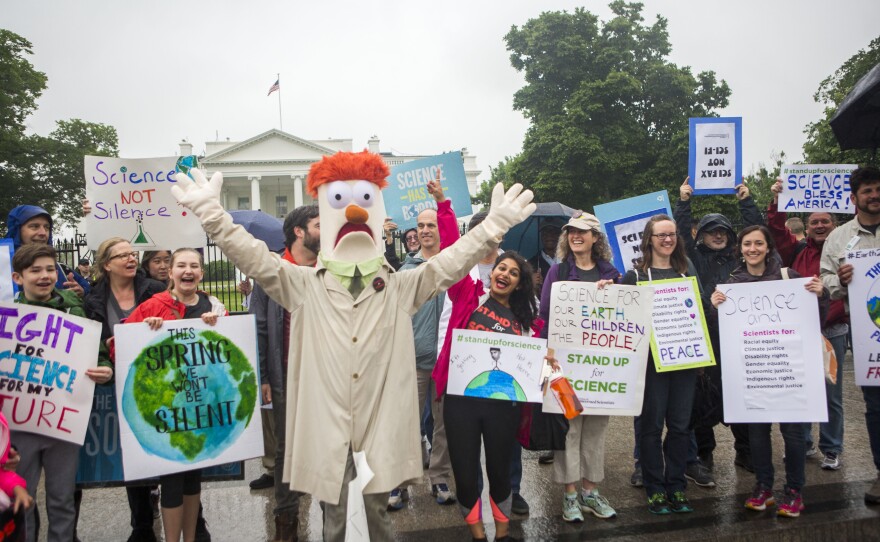
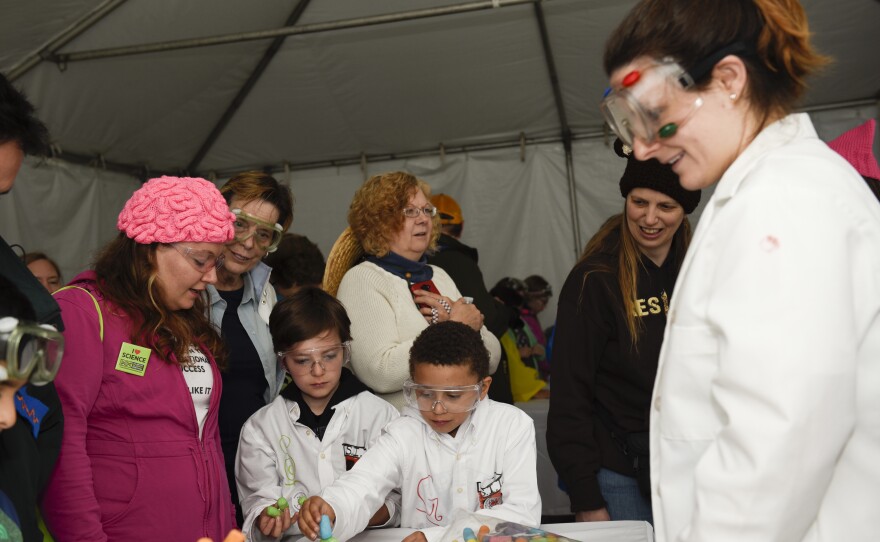
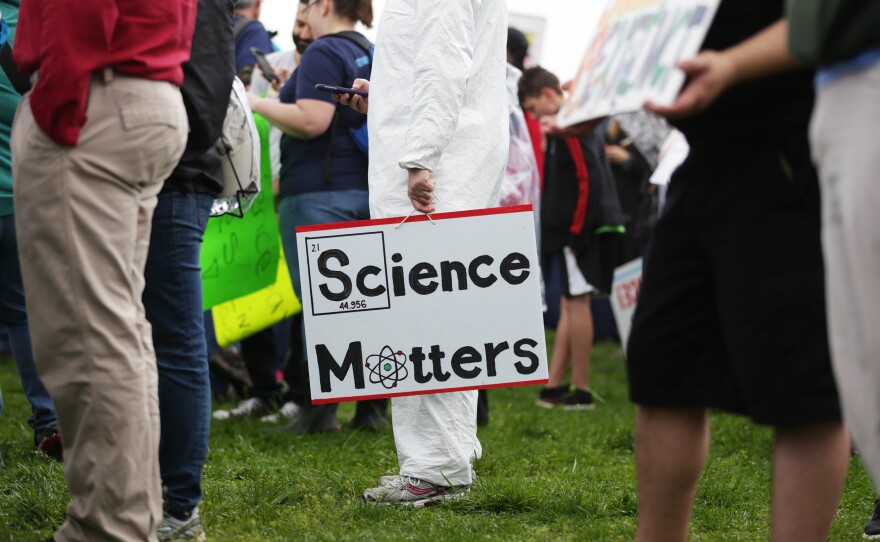
![Demonstrators participate in the March for Science in Berlin. The March for Science organizers have said their own events are nonpartisan, and the overarching mission is to "[champion] robustly funded and publicly communicated science as a pillar of human freedom and prosperity."](https://cdn.kpbs.org/dims4/default/7dd12ed/2147483647/strip/true/crop/5731x3530+0+148/resize/880x542!/quality/90/?url=http%3A%2F%2Fkpbs-brightspot.s3.us-west-2.amazonaws.com%2Fassets%2Fimg%2F2017%2F04%2F22%2Fmarch-for-science-006_gettyimages-671456562-68a740749e37973fa0826d2f254740de2db11ffb.jpg)
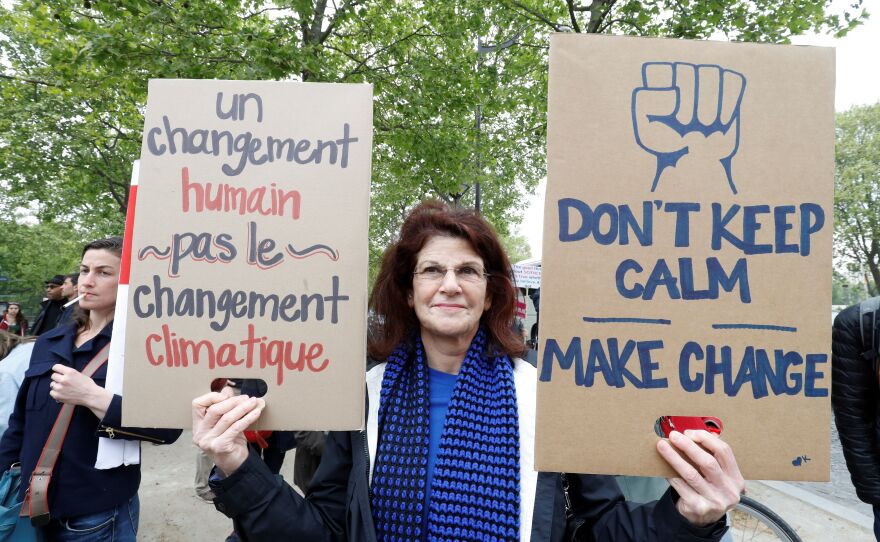
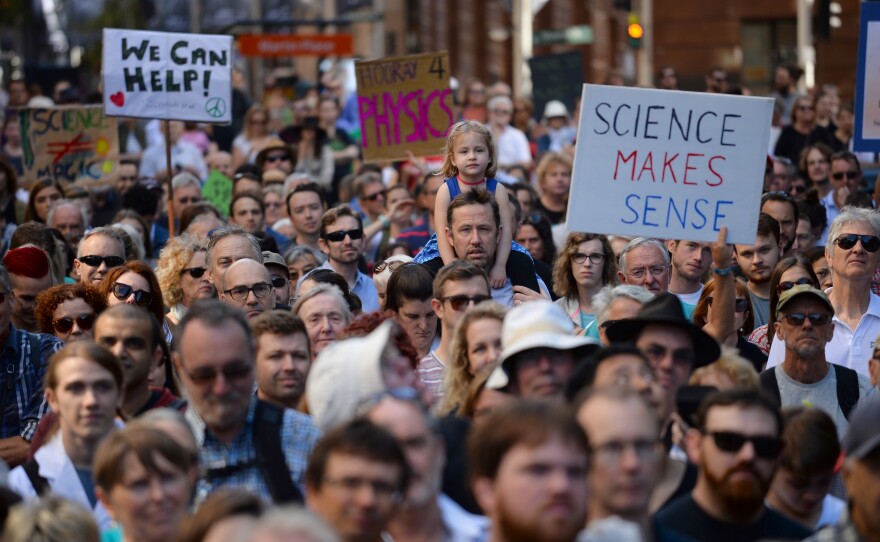
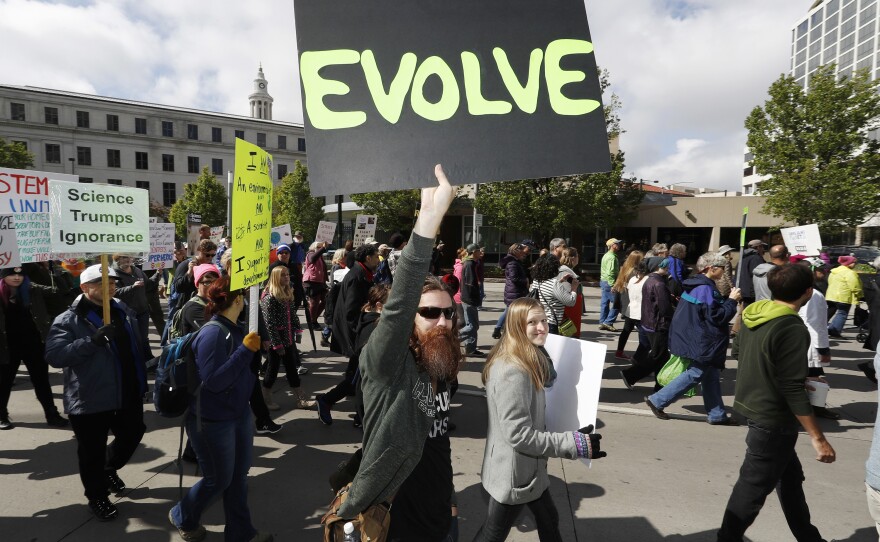
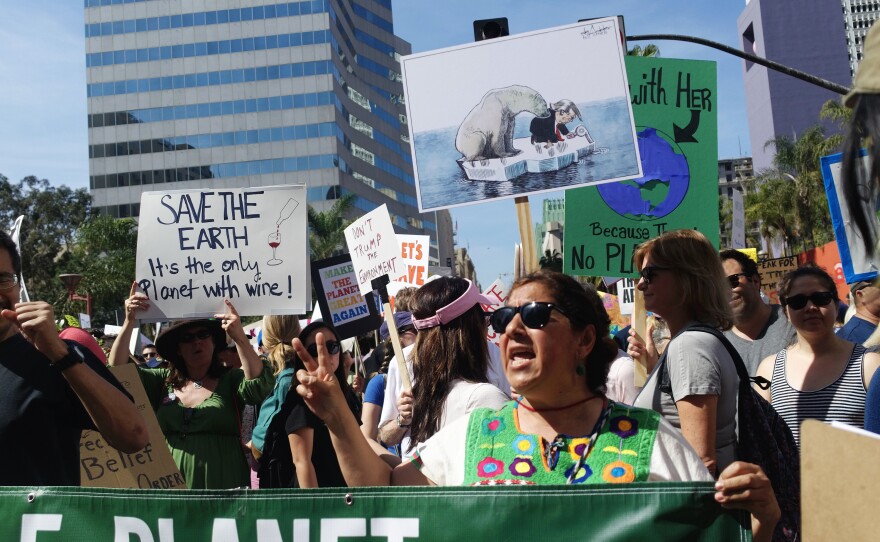
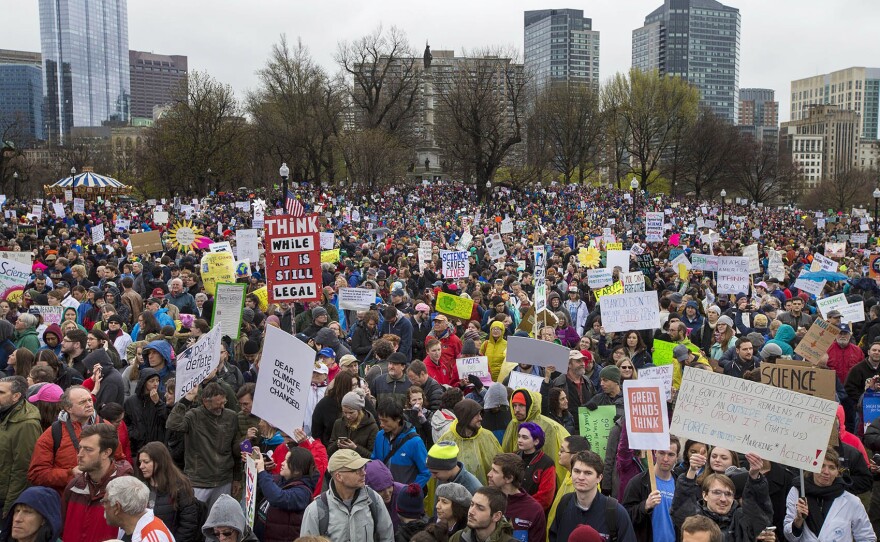

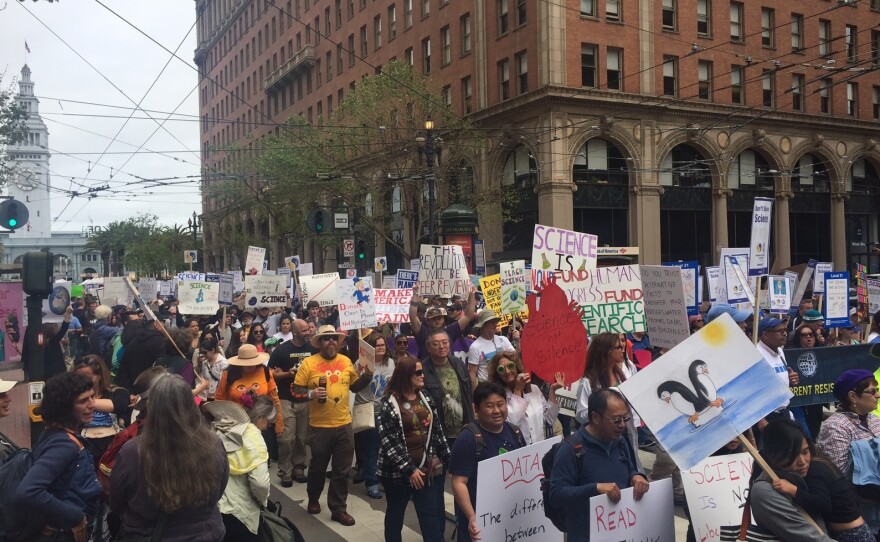
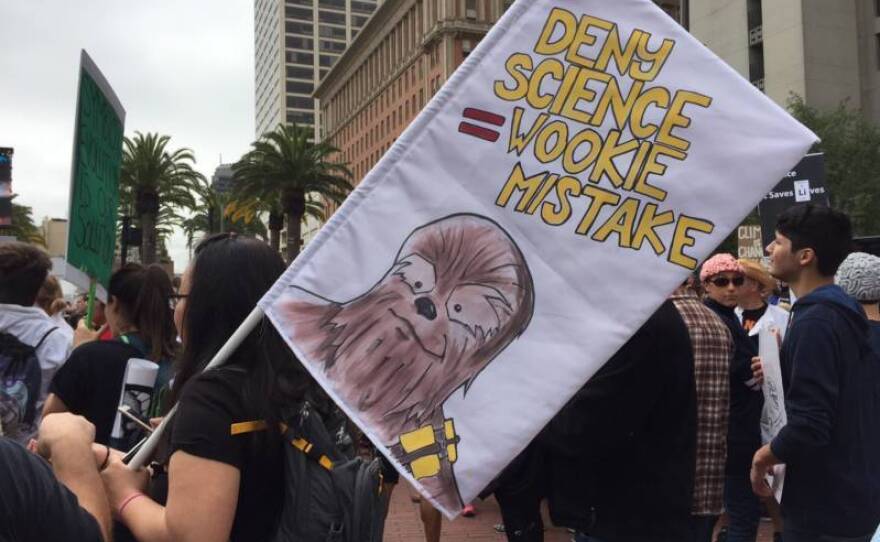
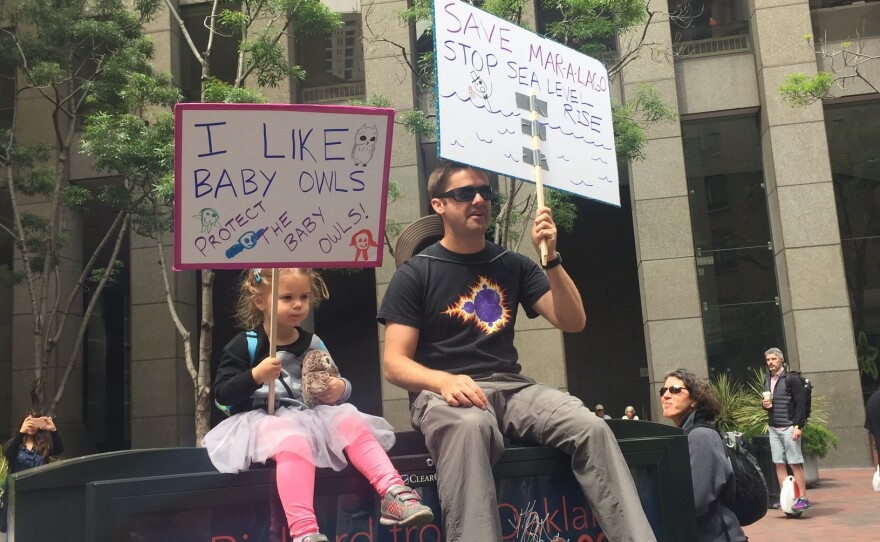
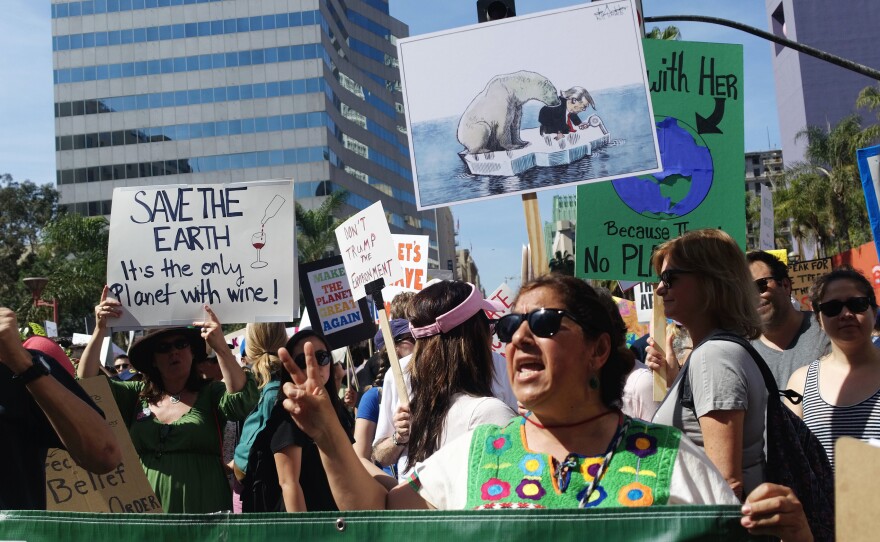
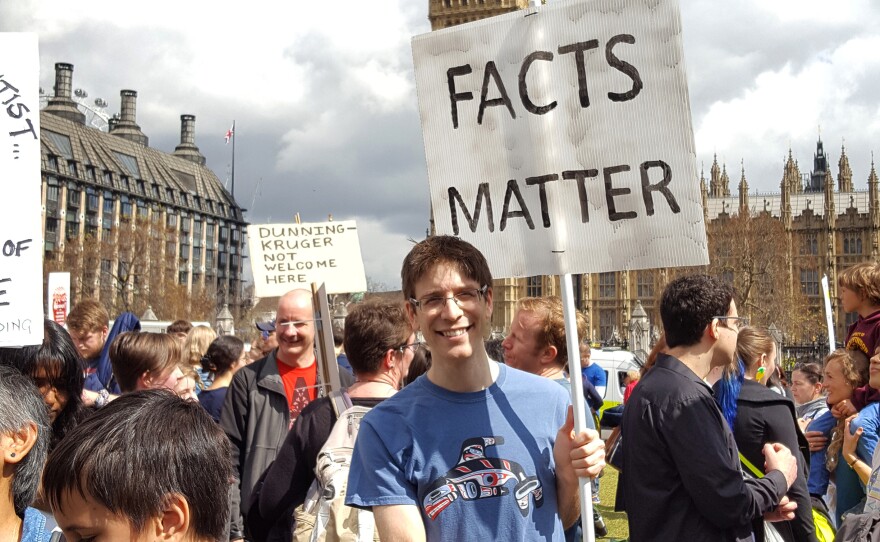
Updated at 1:25 p.m. ET
Enthusiasts say their March for Science on Saturday in communities around the world is intended to "support science for the public good."
The main event is happening in Washington, D.C., but satellite marches are planned in all 50 states, and at least 610 marches have been registered on the March for Science website across the world on all continents except Antarctica.
While they may not have registered with the main march, a group from the Neumayer Station III in Antarctica gathered on Saturday to support the international efforts.
The idea for the demonstration started after the large Women's March on Washington that took place in January, one day after President Trump's inauguration. The Women's March was, in large part, a response to Trump's agenda and spurred by statements he made about women.
The March for Science organizers have said their own events are nonpartisan, and the overarching mission is to "[champion] robustly funded and publicly communicated science as a pillar of human freedom and prosperity."
"I think the profession of science is under attack, and why is that happening? Because we've really ceded the floor," says Lucky Tran, a scientist and organizer of the march. "We haven't engaged in politics, we've left that open for politicians to come in and really hijack and obfuscate science for their own selfish needs."
But despite these nonpartisan announcements, researchers and scientists in the U.S. have debated if they should participate, as NPR's Nell Greenfieldboyce reports:
"Some researchers predict that this March for Science will release much needed energy and enthusiasm at a time when science is under threat; others worry it will damage science's reputation as an unbiased seeker of truth."
Even though the future of science under the Trump administration has been a concern for many, Tran, in at interview with host Mary Louise Kelly on Weekend Edition, says science has been under attack since long before Trump took office.
"Really, what's happened is scientists are scared to engage with politics," Tran says. "They're worried about looking biased, they're worried about their funding, but really that's been a terrible strategy. It's meant that bad science policy decisions have been made.
"If you look at climate change or public health, they're under attack from certain groups because they involve regulation or some businesses have an interest in them or there's some political interest to be gained from them," he says.
In Washington, along with the demonstrations, those participating can go to "teach-ins." These events are meant to engage the public on science topics like "sustainable food solutions" and "the physics of superheroes."
The organizers don't expect the event to end on Saturday. They've planned a week of action for April 23 through 29, and Tran said the group will roll out a policy platform after the march.
Copyright 2017 NPR. To see more, visit http://www.npr.org/.






